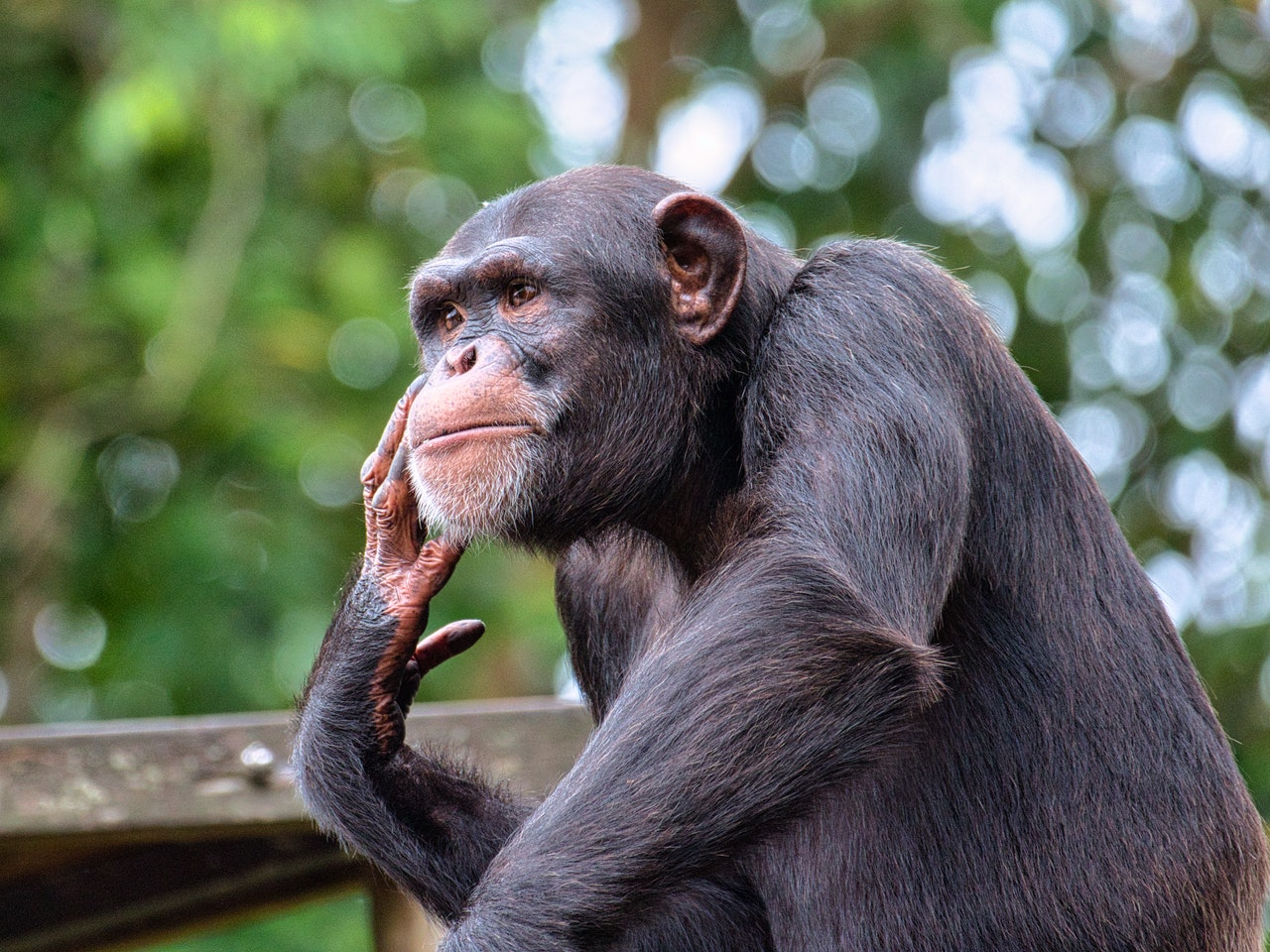By Andrew Currier
Much excitement in the sober world of patents as Dr. Stephen Taler insists[1] that his artificial intelligence technology (DABUS)[2] is the legal inventor on various patent applications. Chimpanzees have some guidance for us, but before I get there, bear with me for some context.
The legal conundrum is as follows: if an AI produces an invention which satisfies the requirements of patentability, then should the creator of the AI, or should the AI itself, be named the inventor? Excellent blogs have been written on the topic.[3]
This exciting narrative is right out of science fiction. Movies like Blade Runner, Terminator, and the Star Trek character “Data” all stimulate the imagination about what point do we consider human technology to be sentient life. Heck, let’s go right back to Mary Shelley’s Frankenstein.
There are many fascinating works on this topic. I would start with the Yuval Harari’s 21 Lessons for the 21st Century, with several chapters dedicated to technology and science fiction, where he explores the concept of “consciousness” vs “intelligence”. According to my loose translation, consciousness is the state of self-awareness and awareness of others, while intelligence is the ability to perform calculations in the mind.
The concept can be summarized in glib fashion: A computer that can beat a human at chess is about as interesting as a bulldozer that can beat a human at weightlifting.[4]
Which brings us to our genetic cousins, the chimps. In Chimpanzee Politics the famous primatologist Frans de Waal points to the Social Intelligence Hypothesis, that primates developed social intelligence to navigate complex social relationships and technical intelligence, the ability to invent, was a secondary effect of social intelligence, that is unique to humans.
“In this view, technical inventiveness is a secondary development: the evolution of primate intelligence started with the need to outsmart others, to detect deceptive tactics, to reach mutually advantageous compromises, and to foster social ties that advance one’s career. Chimpanzees clearly excel in this domain. Their technical skills are inferior to ours, but I would hesitate to make such a claim with their social skills.”
So what does all this mean? According to de Waal, when it comes to social intelligence, humans and chimpanzees are not much different. When it comes to technical intelligence, we differ greatly.
No doubt DABUS has impressive technical intelligence. But whether DABUS is a legal inventor is not really a philosophy question, its simply a policy decision that is to be made about a legal definition. Do we define an inventor in the patent legislation as someone who is socially and technically intelligent? Or is an inventor just someone who is technically intelligent?
Indeed in terms of survival as a human, social intelligence is more important than technical intelligence. When one considers whether “AI as inventor” even matters from a commercialization standpoint … perhaps this entire debate is merely a socially intelligent use of social media to promote Dr. Taler’s inventions. If so, it worked on me 😊. DABUS is really cool.
(In closing, thank you to the chimpanzees for helping us to understand our patent system even better.)
Footnotes
[1] https://www.ipstars.com/NewsAndAnalysis/The-latest-news-on-the-DABUS-patent-case/Index/7366; Thaler v. Hirshfeld, App No. 21-02347 (Fed. Cir. 2022)
[2] https://artificialinventor.com/dabus/
[3] https://patentlyo.com/patent/2022/03/federal-excludes-inventors.html; https://medium.com/artificial-intelligence-ai-for-social-impact/no-longer-just-a-calculator-can-machines-be-inventors-too-79fa7f78e48e
[4] This quote is attributable to Noam Chomsky, though I am unable to locate the citation.
PCK IP is one of North America’s leading full-service intellectual property firms with offices in Canada and the United States. The firm represents large multinational companies, scaling mid-size companies, and funded innovative start-up entities. PCK IP professionals include seasoned patent and trademark agents, engineers, scientists, biochemists and IP lawyers having experience across a broad range of industries and technologies. Contact us today.
The contents of this article are provided for general information purposes only and do not constitute legal or other professional advice of any kind.
